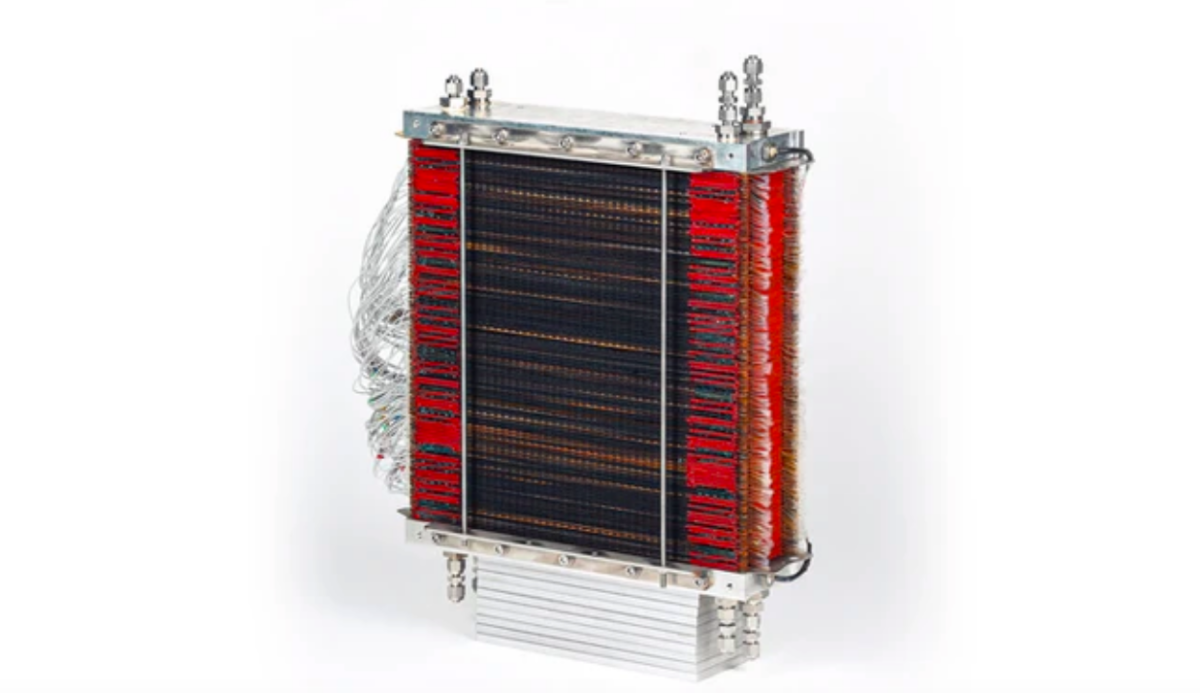ZeroAvia has achieved “record-breaking performance” in testing of its High Temperature Proton Exchange Membrane (HTPEM) systems. “Early testing of the pressurized 20kW HTPEM stack power module in ZeroAvia’s UK R&D location has demonstrated a record 2.5 kW/kg specific power at the cell level, paving the way for 3+ kW/kg system level densities in the next 24 months,” said the British-American hydrogen-electric aircraft developer. The company is working on increased temperature and pressure within fuel cell stacks. “Increased temperature and pressure allows for air cooling, reduces cooling drag, simplifies the system, and ultimately enables much more demanding applications.” According to ZeroAvia, this next generation of fuel cells could also be sufficient to enable electric propulsion systems for aircraft such as the Boeing 737 and Airbus A320.
Universal Hydrogen, Sojitz Corporation, Mitsubishi HC Capital, and an undisclosed third Japanese partner teamed up to build a hydrogen infrastructure solution for aviation in Japan. The companies will collectively identify, evaluate, and qualify local hydrogen suppliers and partners for hydrogen production, module filling and delivery, and more. “Component manufacturers and suppliers will also be liaised with via this partnership, alongside Japanese government agencies and potential customers,” the companies said.
First Hydrogen, together with Ballard Power, launched the test drive of its first-generation zero-emission light commercial vehicle (LCV) in Basildon, United Kingdom. The two Generation I vehicles use a combination of Ballard’s LCS fuel cell stack and First Hydrogen’s proprietary technology. “One of the UK’s largest fleet operators will start the test drive process imminently. A total of 15 major fleet operators have registered to participate as part of the UK Aggregated Hydrogen Freight Consortium,” said the Canadian company. The aim of the test is to compare different technologies in a range of sectors, including grocery, express delivery, utilities, and roadside assistance.
Thyssenkrupp nucera and Unigel have signed a Memorandum of Understanding (MoU) to increase the capacity of the green hydrogen plant that Unigel is developing in Bahia, Brazil, from 60 MW to 240 MW. Unigel's facility will be the first industrial-scale green hydrogen plant in Brazil. It is planned to be delivered at the end of the year. In the first phase, the plant will have a production capacity of 10,000 tons/year of green hydrogen and 60,000 tons/year of green ammonia. The MoU was signed by a German industrial engineering conglomerate and Brazil’s largest producer of nitrogen fertilizers during the visit of the German Minister for Economic Affairs Robert Habeck.
Orlen Group launched Czech Republic’s first hydrogen refueling station in Prague. The group plans to establish a total of 28 stations in the Czech Republic by 2030, and another 72 between Poland and Slovakia. “The station features two dispensers that come equipped with specially designed gun noses that offer a pressure of 700 bar for cars and 350 bar for larger vehicles,” said the Polish fossil fuels company. The next two stations will be opened in Poland this year.
East Coast Hydrogen (ECH2) has awarded Worley the contract to deliver the pre-FEED (Front End Engineering Design) and technical survey for the East Coast Hydrogen Pipeline (ECHP) project, which will connect 10 GW of hydrogen production from Humber and Teesside industrial hubs to the gas network.
This content is protected by copyright and may not be reused. If you want to cooperate with us and would like to reuse some of our content, please contact: editors@pv-magazine.com.



1 comment
By submitting this form you agree to pv magazine using your data for the purposes of publishing your comment.
Your personal data will only be disclosed or otherwise transmitted to third parties for the purposes of spam filtering or if this is necessary for technical maintenance of the website. Any other transfer to third parties will not take place unless this is justified on the basis of applicable data protection regulations or if pv magazine is legally obliged to do so.
You may revoke this consent at any time with effect for the future, in which case your personal data will be deleted immediately. Otherwise, your data will be deleted if pv magazine has processed your request or the purpose of data storage is fulfilled.
Further information on data privacy can be found in our Data Protection Policy.